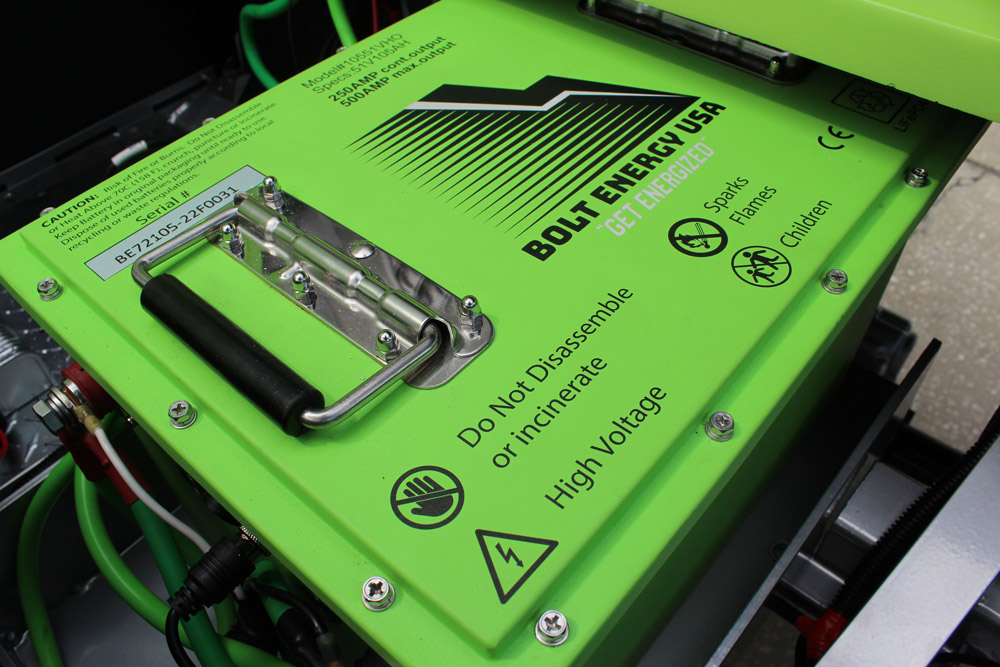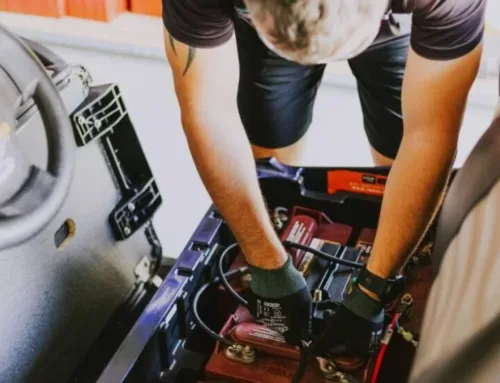The world of golf has seen countless innovations, but one often-overlooked area is the evolution of the humble golf cart. For decades, these vehicles relied on lead-acid batteries, but in recent years, a significant shift has occurred. Lithium-ion batteries are taking over as the preferred power source, offering golfers, course managers, and recreational vehicle users a wealth of advantages. This article explores the reasons why lithium-ion batteries are becoming the go-to choice for powering golf carts.
Why Lithium-Ion Batteries?
Lithium-ion (Li-ion) batteries have long been favored in electronics and electric vehicles, thanks to their efficiency, longevity, and performance. These advantages have made their way to golf carts, fundamentally changing how the carts perform and how they’re maintained.
1. Longer Lifespan
One of the most significant benefits of lithium-ion batteries is their extended lifespan. While traditional lead-acid batteries typically last between 3 to 5 years with proper maintenance, lithium batteries can last 10 years or more, making them a cost-effective choice over time. This extended lifespan reduces the need for frequent replacements and lowers the total cost of ownership for golf courses and individual owners alike.
2. Lightweight
Lithium-ion batteries are much lighter than their lead-acid counterparts. On average, they weigh about one-third of what a lead-acid battery weighs, which has several benefits. A lighter battery means a lighter golf cart, which results in less wear and tear on the cart’s components, such as the tires, suspension, and drivetrain. This weight reduction can also lead to improved energy efficiency, as the cart requires less power to operate.
3. Faster Charging
Lithium-ion batteries charge significantly faster than lead-acid batteries. A typical lithium-ion golf cart battery can fully charge in about 3 to 4 hours, while lead-acid batteries can take up to 8 hours or more. This faster charging time allows golf course managers to keep carts in operation with minimal downtime, improving the overall efficiency of cart fleets.
4. Increased Efficiency and Power
Lithium batteries provide consistent power output throughout their charge cycle, unlike lead-acid batteries, which can experience a drop in performance as they discharge. Golf carts equipped with lithium-ion batteries maintain their speed and power, even as the battery nears depletion. This ensures a smoother and more reliable ride for users.
Additionally, lithium-ion batteries are more energy-efficient, meaning they can travel further on a single charge compared to lead-acid batteries. This is a crucial advantage for golf courses with larger layouts or for users who rely on their golf carts for longer trips.
5. Low Maintenance
Lithium-ion batteries are virtually maintenance-free. Unlike lead-acid batteries, which require regular water refilling and terminal cleaning to prevent corrosion, lithium batteries require little to no upkeep. This lack of maintenance can save time, labor, and money, making them an appealing option for busy golf course managers or personal cart owners who want a hassle-free experience.
Environmental Impact
Beyond performance, lithium-ion batteries are also more environmentally friendly compared to traditional lead-acid batteries. Lead-acid batteries contain toxic materials that can pose environmental risks if not disposed of properly. Lithium-ion batteries, while not completely free of environmental impact, are generally safer and more easily recyclable. They also have a higher energy efficiency, reducing overall energy consumption and greenhouse gas emissions in the long term.
Challenges and Considerations
Despite the numerous advantages, there are a few factors to consider before switching to lithium-ion batteries for your golf cart:
• Upfront Cost: Lithium-ion batteries tend to have a higher initial cost compared to lead-acid batteries. However, this cost is often offset by the longer lifespan and reduced maintenance requirements, making lithium-ion batteries a better investment in the long run.
• Compatibility: Not all golf carts are immediately compatible with lithium-ion batteries. In some cases, modifications to the cart’s battery compartment or electrical system may be required. However, many newer models are being designed specifically for lithium-ion battery use.
• Temperature Sensitivity: Lithium-ion batteries can be more sensitive to extreme temperatures compared to lead-acid batteries. In very cold environments, their performance may decrease unless properly managed with a battery heating system.
Conclusion
The transition from lead-acid to lithium-ion batteries represents a significant leap forward in golf cart technology. With benefits ranging from longer lifespan and reduced weight to faster charging and lower maintenance, lithium-ion batteries are becoming the power source of choice for modern golf carts. While the initial investment may be higher, the long-term advantages make lithium-ion batteries an appealing option for both individual users and golf course operators.
As lithium-ion technology continues to advance, the future of golf cart batteries looks increasingly green, efficient, and powerful, driving the game—and the carts that accompany it—towards a more sustainable and high-performing future.



